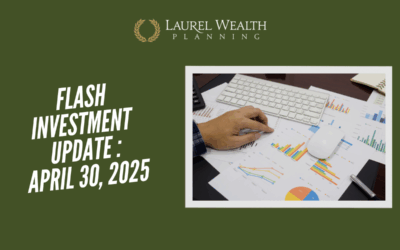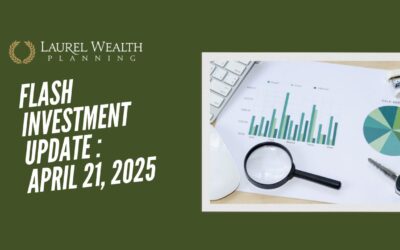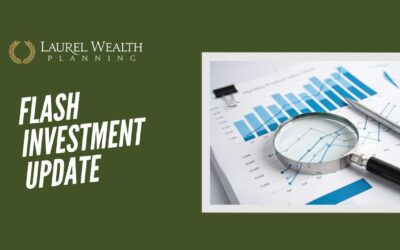Forgive the pun but renewable energy seems to have the wind at its back, making it worthy of consideration for long-term investment. Once viewed as a niche topic for a “green” portfolio, investing in renewable energy has very much gone mainstream.
Sector growth is expected to accelerate, driven by strong demand and clean energy incentives in last year’s Inflation Reduction Act. This could be a record year for clean energy additions, with 380 additional gigawatts from clean energy sources anticipated. Bloomberg NEF’s New Energy Outlook 2020 report predicts 56% of power generation could be provided by solar and wind by 2050.
With these optimistic predictions, we want you to understand how we think about investments in renewable energy and their potential.
Trends driving interest in renewable energy
The following trends have helped drive investing in renewable energy from niche to mainstream:
- Move toward energy affordability and security — The 2015 Paris Agreement made decarbonization a clear long-term priority for countries across the globe. As a result, decarbonization remains crucial to several countries’ long-term energy outlooks.
- Use of AI and Big Data — While the energy grid has been described as a particularly complex infrastructure, the increasing use of Artificial Intelligence (AI) and Big Data can help predict grid capacity levels and implement time-based autonomous trading and pricing.
- Continued technological innovation — Solar energy is emerging as a competitive alternative energy. Anticipated improvements in technologies and the exploration of floating solar photovoltaics will likely help increase its use. The creation of more powerful and adaptable photovoltaic panels is also expected to decrease the cost of solar energy, which already has decreased 85% in the past decade.
Opportunities ahead for renewable energy
Investments in renewable energy make good economic sense, in addition to any environmental benefits. This creates a potentially profitable long-term investment opportunity for all investors.
- Less expensive power option — Renewable energy is now considered one of the least expensive power options in most parts of the world. For example, the costs of onshore and offshore wind energy fell by 56 and 48 percent, respectively, between 2010 and 2020. These falling costs make renewable energy an attractive investment while fostering a global energy transition.
- Job creation — As global clean energy investment dollars increase, economic opportunities and jobs in related industries are expected to expand. In addition, spending on energy efficient appliances, electric vehicles, and buildings can lead to employment opportunities.
Potential challenges for renewable energy investors
At Laurel Wealth Planning, we counsel our clients on the inherent challenges associated with any type of investment. Investors should be mindful of the following challenges associated with investments in renewables.
- Lack of top-quality land – Reaching a goal of net-zero carbon emissions by 2050 will require large increases in wind and solar energy production. The challenge is that this requires at least 10 times as much space as coal- or natural gas-fired power plants. According to a McKinsey report conducted in Germany, a country aiming to double its share of renewable energy by 2030, only 9 percent of land is suitable for this kind of installation. This leaves little room for error when adding capacity.
- Less control over power sources — A movement toward renewables marks a turn away from human-controlled carbon-based power generation. This results in more complexity, requiring supply and demand forecasting models to be built. Utility companies find themselves needing to create analytical and strategic systems to make up for this loss of control.
- Ongoing supply chain issues and shortages — Supply chain issues and continued supply shortages pertaining to solar modules, transformers, and other key components across technologies currently slow project development. There also is an expected short supply of tax-equity funding, which likely will impact middle-market players and developers. Further, like other industries, the renewable energy sector is impacted by labor shortages. This is especially true for trained professionals who can quickly take on positions inside new or expanding renewable platforms.
Considerations we use when investing in renewable energy securities
As I’ve outlined, renewables are becoming mainstream because of a global energy transition. This is not a political or niche issue; it’s just the way the world is moving. Clean energy is taking on greater importance to nearly all companies and to many consumers.
If you want an example, look no further than General Motors, a company that has invested heavily in renewable energy and is set to be among the largest electric vehicle manufacturers during the next several years.
When investing in renewables, we consider the following:
- Research the companies in funds carefully – While renewable energy companies are highly leveraged because they tend to be capital-intensive, there are companies with reasonable debt ratios and solid future growth prospects. Determining which energy companies, energy projects, and related energy securities present the best investment opportunities always comes down to a matter of careful research.
- Consider multiple ESG factors – While renewable energy securities are likely to check the Environmental box in Environmental, Social, and Governance Investing, we consider how they fit into our overall investing philosophy. If they are being used in our ESG Plus portfolio, do the company’s social and governance policies and practices align with our clients’ values as well?
Mindful of all the aforementioned trends, opportunities, and challenges, I do believe that given their short- and long-term growth potential, investing in renewable energy securities is valuable for all investors. Many investment houses we use have funds or are creating funds with renewable energy stocks. We invest in some of these funds in our ESG Plus portfolio but are also keeping an eye on them for our standard portfolio.

Laura, the founder of LWP, is a Senior Wealth Manager, Chief Investment Officer and Shareholder. She has a master’s degree in tax and is an excellent listener. While she is a sophisticated financial planner with experience in complex issues, her priority is ensuring a financial plan works for people.




